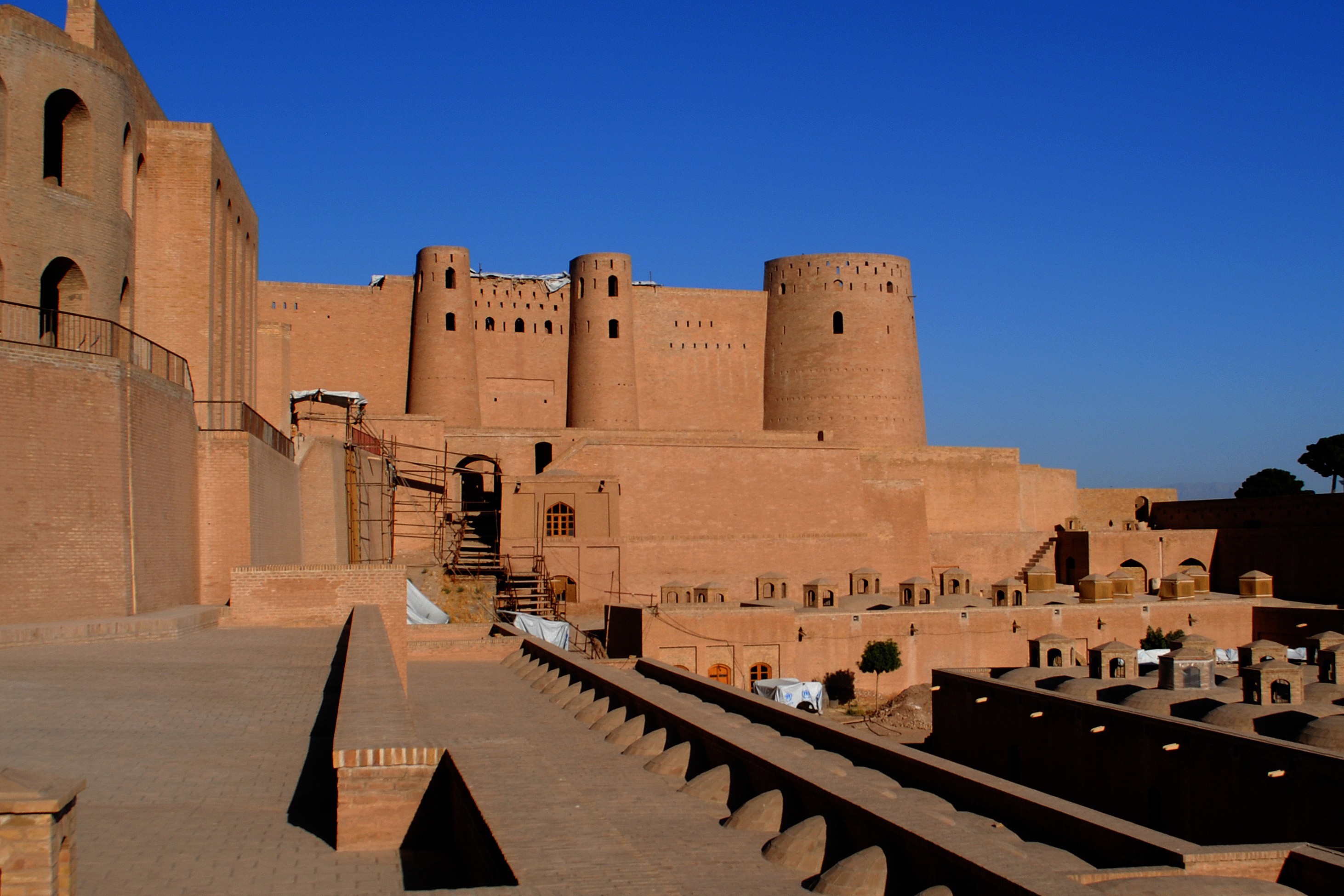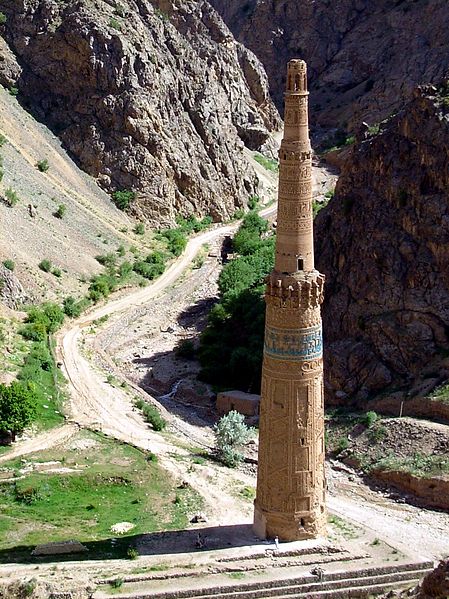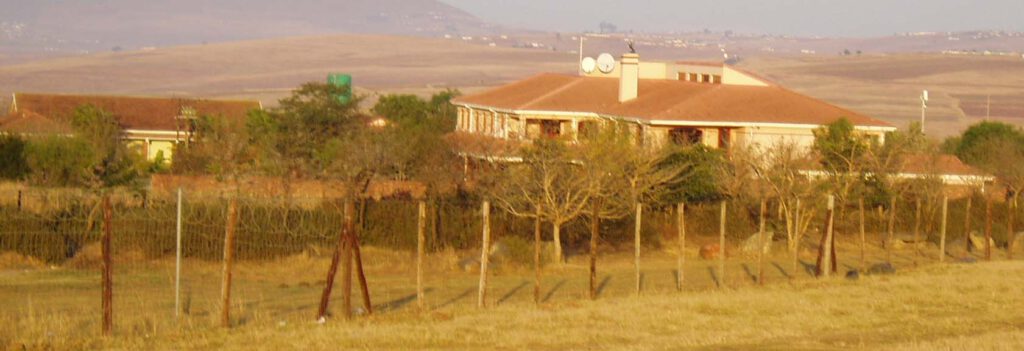In a class by itself as historical crossroads go, within Herat’s crumbling walls and precincts hangs a brocade of culture with few equals in the world. Where else might you find cheek by jowl a citadel of Alexander the Macedonian, records of Nestorian evangelists, tombs of Timur’s martial descendants, traces of Persian poets and philosophers, memories of fire-worshipping Zoroastrians and centuries-old Jewish synagogues? Like a skein of rich pashmina wool, they were all knitted and pearled together in Herat’s covered-bazaars and caravanserais where traders, travelers, bankers and merchants found not only hospitality and wherewithal for their journeys, but where they mused about the things they could never forget, the customs, beliefs and practices of distant lands, and recited the poetry of mystics while seeking relief from the toll of travel at the potent water pipes (hookahs).
A flower child of the 60’s who I came to know many years later told me of the charms of those Herati hookahs. But, it seems, he had been rather too casual – even exuberant – about their use and caught the eye of offended authorities who clapped him behind bars. There he moldered for weeks, friendless, lacking any of the conveniences offered in the caravanserais and knowing not a line of Persian poetry – and with none of the monetary clout that would have won him release from purgatory. It was only a desperate plea passed through prison bars and reaching a friend back in Italy that produced his liberty. But what made this tale of misery and deliverance riveting to me so many years later, was that I and my companions had passed through the city at the very time he lay despairing in a no-frills, Afghan jail.

Pressured by time in our travels, we could linger little, and pressed on to the Iranian border through no-man’s land on rough gravel across gullies in the hope of reaching Mashhad before nightfall. But the Iranian border guards flipped the pages of our passports indignantly, demanding to see our visas. ‘What visas?’ we asked. We’d been assured in Delhi that permission to enter would be available at the port of entry. It may have been the strange appearance of our cartop rider which gave the impression that Mel Gibson might emerge at any moment to carry the day with post-apocalypse panache.
Whatever the cause, we were rebuffed. There followed a troubling conundrum. We had exited Afghanistan, our visas having been canceled. Our only hope of securing Iranian visas was back in Herat, inside Afghan territory. The Afghan guards, though, having a long acquaintance with Silk Road complications, were good-natured about readmitting us, undocumented as we now were, and as night fell, we found ourselves camping rough outside the city walls within hailing distance of the royal Iranian consulate on the promise that at sunrise we might meet with the smiles of Persian authorities who stood athwart our Silk Road itinerary.
Note to my readers: It maybe that the exactions of trans-continental travel have left readers a trifle road weary. I propose to take a respite from this account and resume its tales soon enough. My next post will take a diversion to a little known page from the life of Nelson Mandela. JPL



Greetings Jonathan:
Your writing is always a fascinating read! Keep it up. You’ve had amazing experiences.
I was in Herat in 2014 while doing a program review for MCC. It was just before the election and there had been numerous bombings and kidnappings in Kabul and elsewhere. The entire 2-3 weeks we (a team of three; an Canadian working for MCC in Akron, a young British doctor who had been in the country for several years — she had superb language skills, and a good take on security issues) were in the country was very tense. We were to have had time in the Central Highlands but couldn’t fly in because of snow storms, but had several days in Herat. Our movements were carefully monitored by IAM and we stayed at a home of their staff currently out of the country.
When I noted your initials JPL at the bottom of the Mandela comment I immediately thought of another former colleague with those initials — John Paul Lederach.
Continued blessings to you and Mary Kay (do I remember correctly).
Ron
The ethos of these ancient cities, Ron, never ceases to impress, as I’m sure you sensed. They have seen the breakdown of order across the centuries as power ebbs and flows, and have developed resilience and the reflexes to somehow survive. It is why they are still there having bested the worst of times. How else can you account for the flowering of poetry, philosophy, story and wisdom as the underpinnings of the society. Ahmed Shah Massoud one of the heroes of the Afghan resistance to foreign rule had the personal devotional practice of walking the valley of the Panchir while reciting classical Persian verse. And in time the foreign tanks rolled back north from whence they came. It would be apt to ask, on which field is the battle won? The valley of the heart, surely.
Not at all road-weary. Can’t wait for Iran. But, definitely looking forward to Mandela story.
Greg